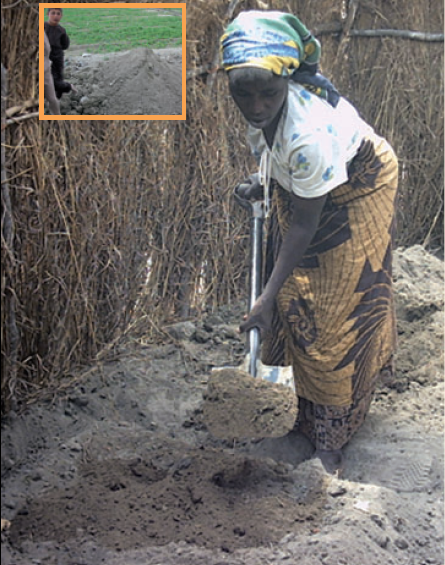Compost as soil conditioner
"I got more yield by using compost. This year I have got beans and fibrous vegetables double in quantity than last year." (when he used chemical fertiliser) From: Quazi, A.R. [NGO Forum for DWSS] Study on the re-use of excreta in Bangladesh. In: Environmental Sanitation Case studies to be published by IRC International Water and Sanitation Centre.
Decomposed excreta is rich in nutrients (NPK nitrogen, phosphorous, and potassium) and organic material. The organic material in compost acts as soil conditioner. It also improves the structure and water holding capacity of sandy soils and adds structure and permeability to clay soils. Composted excreta, on its own or combined with other biodegradable material, enhances the fertility of topsoil.
| Advantages | Disadvantages |
|---|---|
| Compost reduces the need for artificial fertiliser. Compost improves soil conditions. |
Health precaution always needs to be considered when applying compost enriched with excreta! Cultural taboos could hinder use. |
Applying conditions
- Application of decomposed faecal matter at large scale is only recommended after full secondary treatment processes, meaning removal of all pathogens.
- Compost containing excreta should be applied before sowing or planting. The application rate can be based on the current recommendation for the use of phosphorous-based fertilisers.
- Compost containing excreta should be applied in such a way that the upper layer of the soil covers the material. Note; compost from excreta should not be applied as fertiliser to vegetables eaten raw.
- Personal protection equipment should be used when handling and applying the compost.
External links
- General information about Compost as soil conditioner www.ecosanres.org
- General information http://aquamor.tripod.com
